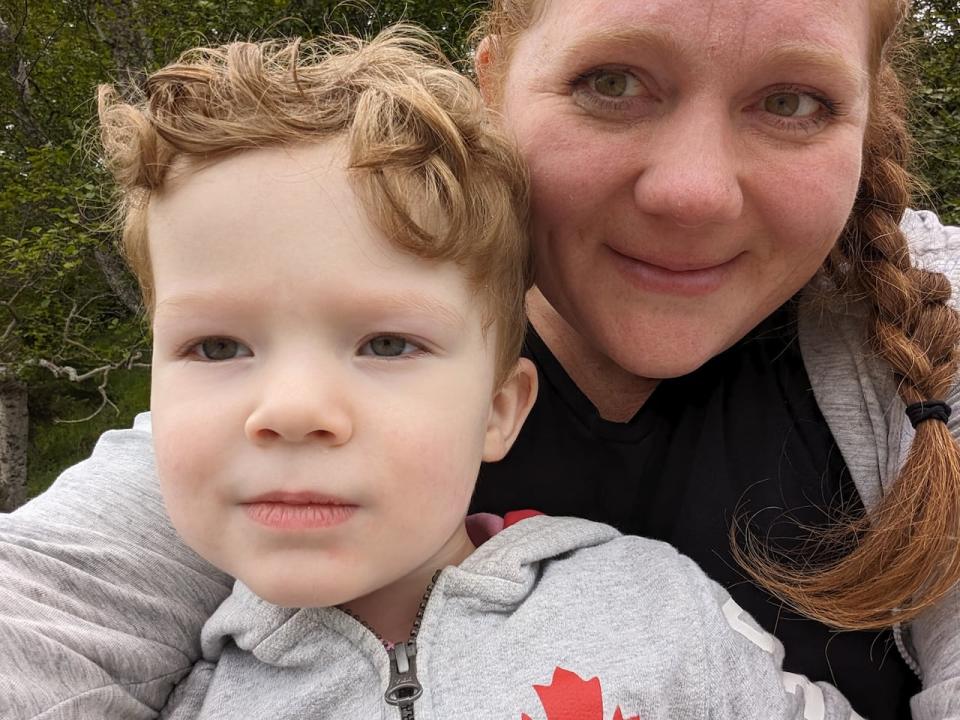Up to a year's wait for speech and language pathologist, mom told
A mother in British Columbia's Comox Valley says she was shocked to find out it could take up to a year for her toddler to access treatment with a publicly funded speech-language pathologist.
Courtenay resident Melissa Dunn, 41, said she requested an assessment for her son Robbie at his 18-month checkup in January because he hadn't met the milestones for speech development for his age.
After waiting five months for an assessment that confirmed Robbie could use some professional help, Dunn says, she was told it would take another nine to 12 months for him to see a pathologist.
"As a parent you want to give your kids all the help and all of the opportunities that you can to make them succeed," Dunn told CBC News.
"To be told there is something your child needs or could really benefit from that just isn't available ... it's just really frustrating to hear."

In a written statement, Island Health said after children are assessed, they are prioritized based on need.
Wait times vary based on the assessment process, it said, adding that health authorities across B.C. are seeing a "significant increase in demand for speech-language services."
'B.C. is falling behind'
Chelsea Chichak, president of Speech and Hearing B.C., says she's not surprised to hear about a toddler waiting so long to access to treatment.
She said in some parts of the province, like northern B.C., parents have to wait up to two years just for an assessment and then another year to see a pathologist.
"Compared to other provinces, B.C. is falling behind in terms of their early intervention services," Chichak said.
In a written statement, B.C.'s Ministry of Health says it recently added eight more places to the speech sciences program at the Victoria campus of the University of British Columbia — the only training program for this service in B.C. — bringing the total to 44 seats a year starting this fall.
The ministry added that it has various tactics to recruit, train and retain allied health professionals, including offering signing bonuses in some rural or urban communities, and offering bursaries to attract more students to the program.
But Chichak says the shortage of speech-language pathologists is so severe across the province that more needs to be done.
In 2018, Speech and Hearing B.C.'s research showed the province needed 185 more pathologists to meet the need for early intervention alone.
Research shows early intervention is "paramount," Chichak says, and that delays in therapy can lead to difficulty with literacy and overall success.
"If [children] can't get the support that they need earlier, it doesn't close that gap all of the way and they're going to continue to have challenges throughout their educational life," she said.
Private sector options
Island Health says children aged under five can also access treatment through child development centres and private practitioners. Once they're in kindergarten, the province provides access to speech-language pathologists through schools.
Dunn says she contacted her local child development centre as well, only to be told the wait time was about the same.
In the end, she opted for private treatment at a cost of $150 per session. Dunn says she's currently a stay-at-home mom, and her husband's benefits with his job as an auto body estimator only cover two speech pathology sessions per year.
The recommendation from the clinic, she says, was for two sessions a week for the first few weeks.
"We unfortunately won't be able to do that because that's just not within our means," she said.
"But we certainly are going to go as many times as we can and hopefully get some skills that we can bring home."

 Yahoo News
Yahoo News 
